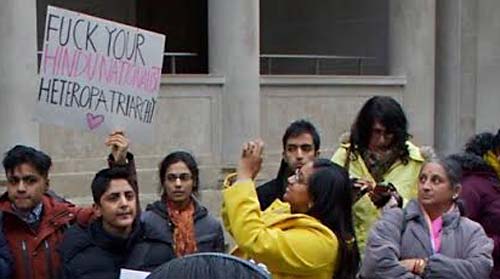Quite appropriately, immigrants and immigrant advocates reacted with anger and dismay to President Obama’s Sept. 6 announcement he would not move forward to fix “broken” immigration policy until after the November elections.
It’s now old news that the decision was “political.” Of course it was–everything in the world of federal policy is. More urgent than recriminations and “what if” scenarios is consideration of what now, where to go next? It’s now a month since the president’s disappointing announcement and a month until Election Day. What should immigrant advocates do and what should pro-immigrant voters do now?
Of course it’s sad and frustrating to observe the limitations of the president’s ability to lead the nation, given a recalcitrant Congress. But this is an everyday reality as the nation’s social policy dialogue continues to devolve into a multitude of sweaty, grunting, ideological wrestling matches—full of sound and fury and signifying very little. There’s little utility fixating on the president’s “broken promise” to fix the immigration system. A more useful priority will be to weigh in about what the fix should look like once it’s announced.
Immigration reform advocates will need to overcome their frustration and work hard to get pro-immigrant voters to the polls in November for what will, essentially, be a vote of confidence in Obama’s commitment to (very soon!) take practical steps toward (substantially!) better immigration policy. Of course, the challenge in getting demoralized pro-immigrant voters to turn out is, indeed, formidable. The Center for American Progress/Latino Decision’s timely survey (in June, before the president’s decision to defer executive action) asking Latino voters how it would affect their decision to go to the polls provides a worrisome assessment of the challenge: They found that 54 percent of Latino voters would be less likely to turn out to vote.
The Latino Decisions researchers correctly ask whether the “broken promise” decision by the Obama administration was a missed opportunity for Democrats to mobilize Latino voters. There’s no doubt that it was. But I would argue there still remain opportunities to restore Latino and other pro-immigrant voters’ enthusiasm.
Immigrant advocates, ethnic media, and pro-immigrant candidates can do this if they move vigorously to seize the opportunities opened up by Obama’s delaying executive action by catalyzing widespread community dialogue on two key issues:
• What should a “sustainable” administratively-initiated fix to immigration policy look like?
• How does a fairer, more equitable, and more inclusive immigration policy benefit not only immigrants but also entire communities, regions and the nation?
Obama’s “broken promise” excuses for his delay in acting actually represent an invitation to advocates, candidates, and voters to weigh in on the shape of executive action on immigration policy and ongoing efforts to enact immigration reform. This can be seen in these two excerpts from his remarks:
“What I’m saying is that I’m going to act because it’s the right thing for the country,” he said. “But it’s going to be more sustainable and more effective if the public understands what the facts are on immigration….
“I want to … make sure that the public understands why we’re doing this, why it’s the right thing for the American people, why it’s the right thing for the American economy.”
In reality, more important than the exact timing of executive action is its scope (how many will benefit in principle), the viability of effectively implementing new provisions (how many will actually be able to benefit), and the extent to which new guidelines provide a supportive legal framework for long-term settled immigrants who have waited 10 to 15 years for relief to get on (and move ahead) with their lives.
Immigrant advocates and pro-immigrant political candidates can and should engage with their constituents in pressing the Obama administration for executive action that is broader and bolder — not narrower, compromised or timid.
Pro-immigrant voters should go to the polls with an almost-paradoxical mixture of anger and optimism to make their voices heard and send the message that executive action, when it comes, must be big, bold, and for real.
“Sustainable” executive action will need to do more than simply protect from deportation longtime community residents who are undocumented. To make good on the president’s newly-articulated commitment to a sustainable fix, the new policy will need to catalyze and nurture genuine immigrant integration. It must provide, at the very least, pathways for learning English, for developing workplace skills, and for immigrant participation in civic decision-making and community service. Such a policy would present a win-win, benefitting both immigrants and the general public.
At the same time, ongoing pressure will be needed to ensure that executive action to provide administrative relief is more than a rhetorical promise. The process for applicants to seek DACA-like relief will need to be streamlined and affordable.
Ethnic media, immigrant advocates and candidates must get out the message that the November mid-term elections are not a time to give up — but for pro-immigrant voters to make their voices heard.
After all, it’s only two years until 2016 and voter apathy is a vote for the intolerable status quo.
Ed Kissam has led various studies of immigrant settlement in the United States over the past decade, including the New Pluralism Study of immigrants in rural areas and the Latino Entrepreneurship study focusing on North Carolina and Iowa . He is currently working with a research task force on strategies to improve educational outcomes for Latino youth in rural communities throughout the United States.











